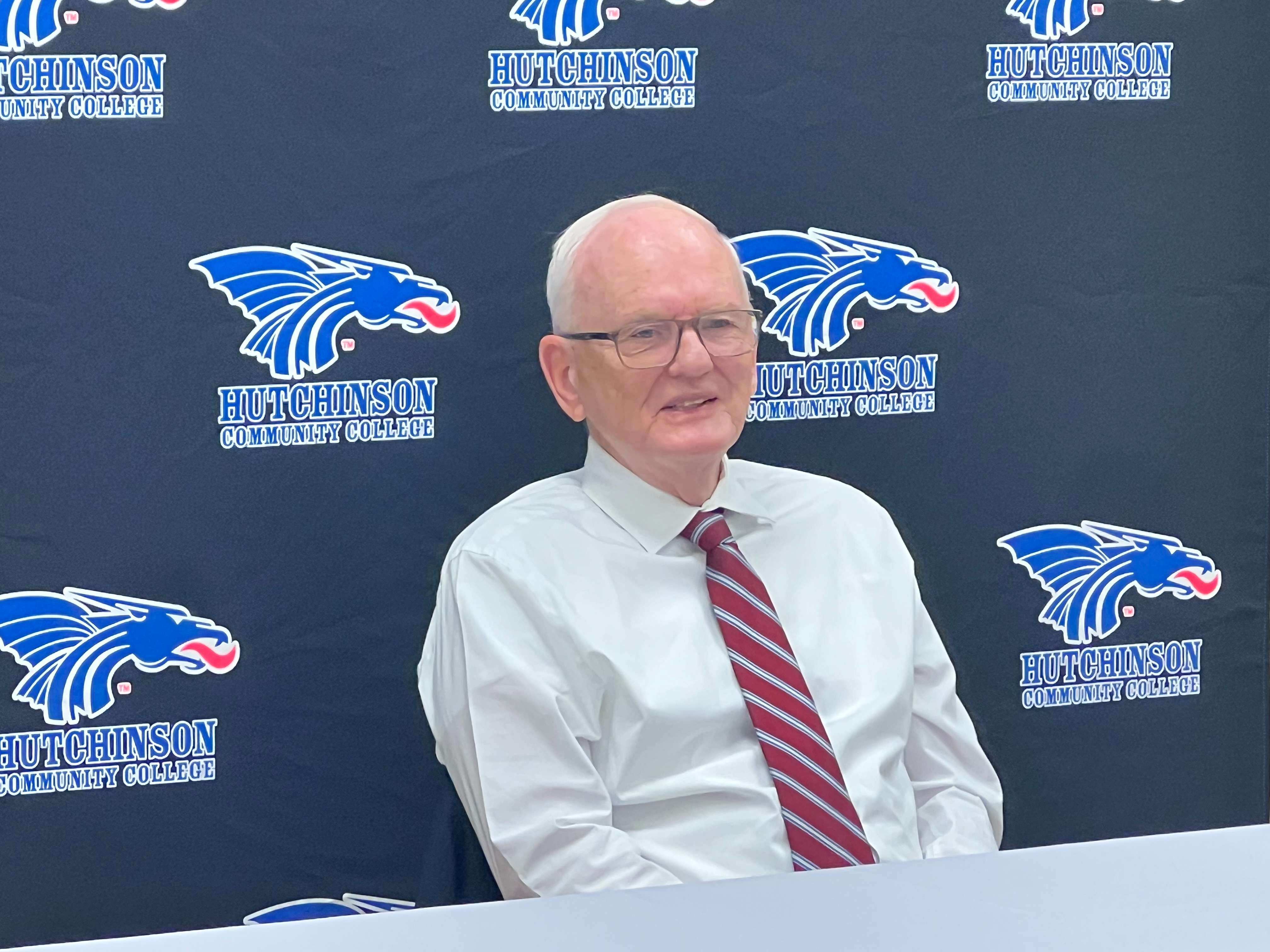
By SEAN BOSTON
Hutch Post
HUTCHINSON, Kan. — Jim Olson spent more than 30 years living a life of secrets. On Tuesday, the former CIA counterintelligence chief talked about his long clandestine career, which was both the honor of a lifetime and a constant test of endurance.
Olson, who served in the CIA’s Directorate of Operations before becoming chief of counterintelligence at headquarters in Langley, Va., spoke at a press conference ahead of his Dillon Lecture Series appearance at Hutchinson Community College.
“Our mission is to protect the American people,” Olson said. “It was a very fulfilling thing to do. My wife and I really got a lot of satisfaction out of providing intelligence to keep the American people safer.”
He described his Cold War posting to Moscow as the dream assignment of any CIA officer, though it carried grave risks. “The consequence of getting caught would be catastrophic,” he said. “Our job was to steal Russia’s secrets on their turf, under their nose, and not get caught.” He and his wife, Meredith, underwent intensive psychological testing before the assignment. “Your apartment is bugged. You’re followed everywhere you go. You can’t talk about your work, you can’t talk about your problems. It’s a very artificial way to live,” he said. Even so, the couple believed in their mission. “We felt honored to be there and to have the opportunity to collect intelligence against our main adversary.”
Coming home required adjustment. “We couldn’t believe we could actually talk,” Olson said. “Living in a hostile environment like that is hard to get away from. Our marriage is strong, and we adjusted in due course, but it has its aftereffects. I have recurring dreams. For some reason, my dreams are being chased.”
Olson said he never planned on becoming a spy. Raised in Iowa, he studied law and expected to become a small-town attorney until the CIA reached out. “I did not apply. They found me,” he said. “Somebody spotted me, one of my professors, I think, and I got a call out of the blue. Once I got there, I realized that’s where I belonged.” He recalled being asked where he thought he could best contribute. “I liked research. I liked writing. I said I think I could help you with analysis. They were looking at all my psychological profiles and training records. They knew me better than I knew myself. They said, ‘No, you’re going to be an operator.’ It turned out they were right.”
After retiring, Olson accepted an invitation from former President George H.W. Bush to establish an intelligence studies program at Texas A&M University. The move required him and his wife to come out from undercover, a step most CIA officers avoid. “Most of our people retire undercover,” Olson said. “That’s much more comfortable. You don’t have to worry about the threats. That was our plan, but it didn’t work out that way.” Leaving secrecy behind also brought new dangers. “There are really bad people out there, terrorists, narcotics traffickers, organized crime, and they’ve got long memories,” he said. “Meredith and I are always very careful. The FBI and local police have been involved several times because of threats we’ve received.”
At Texas A&M, Olson said interest in intelligence careers is strong, but many students are undone by mistakes from their teenage years. “It’s heartbreaking,” he said. “Because of dumb decisions you made when you were 16, 17 or 18, it’s never going to happen.”
Reflecting on decades in the shadows, Olson said the work was never easy but always worthwhile. “We had a lot of very courageous Russians who were risking their lives working secretly with us,” he said. “You always were aware that a single mistake could be fatal to them and possibly to you as well. But what sustained us was our belief in the mission. We felt honored to be there. It was kind of the dream assignment of any CIA officer to go to Moscow.”





